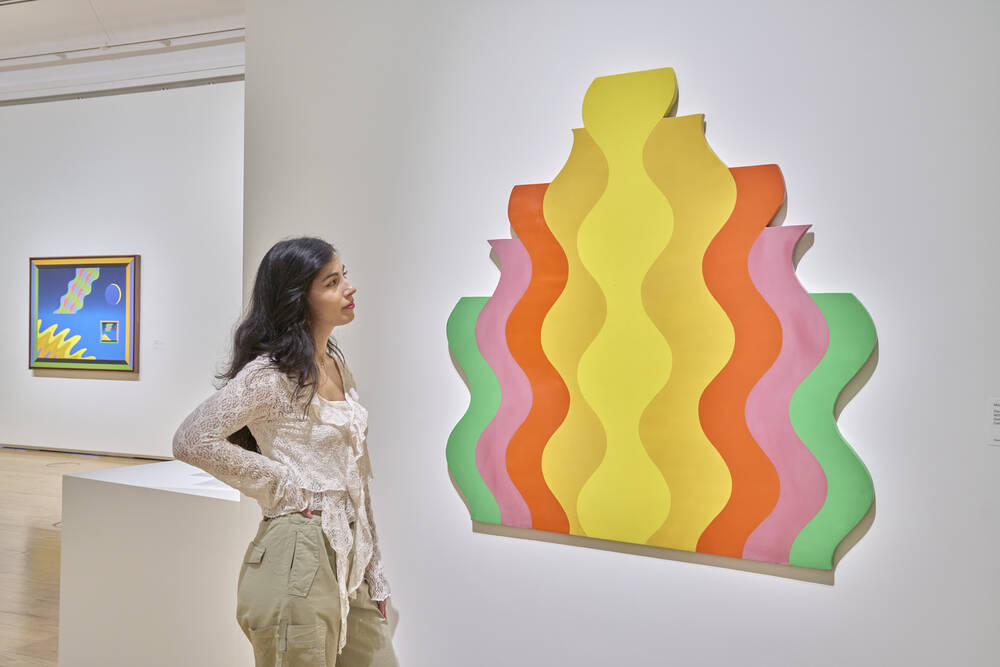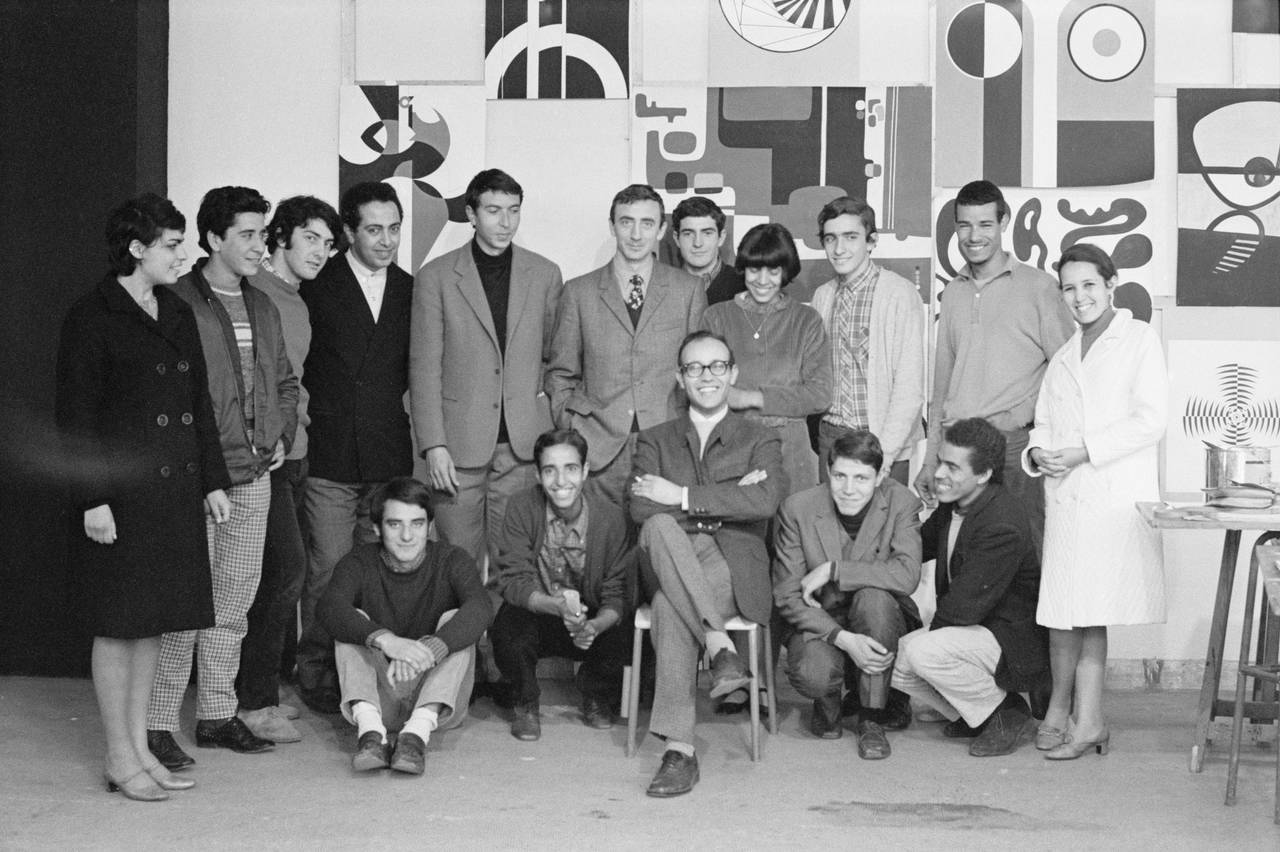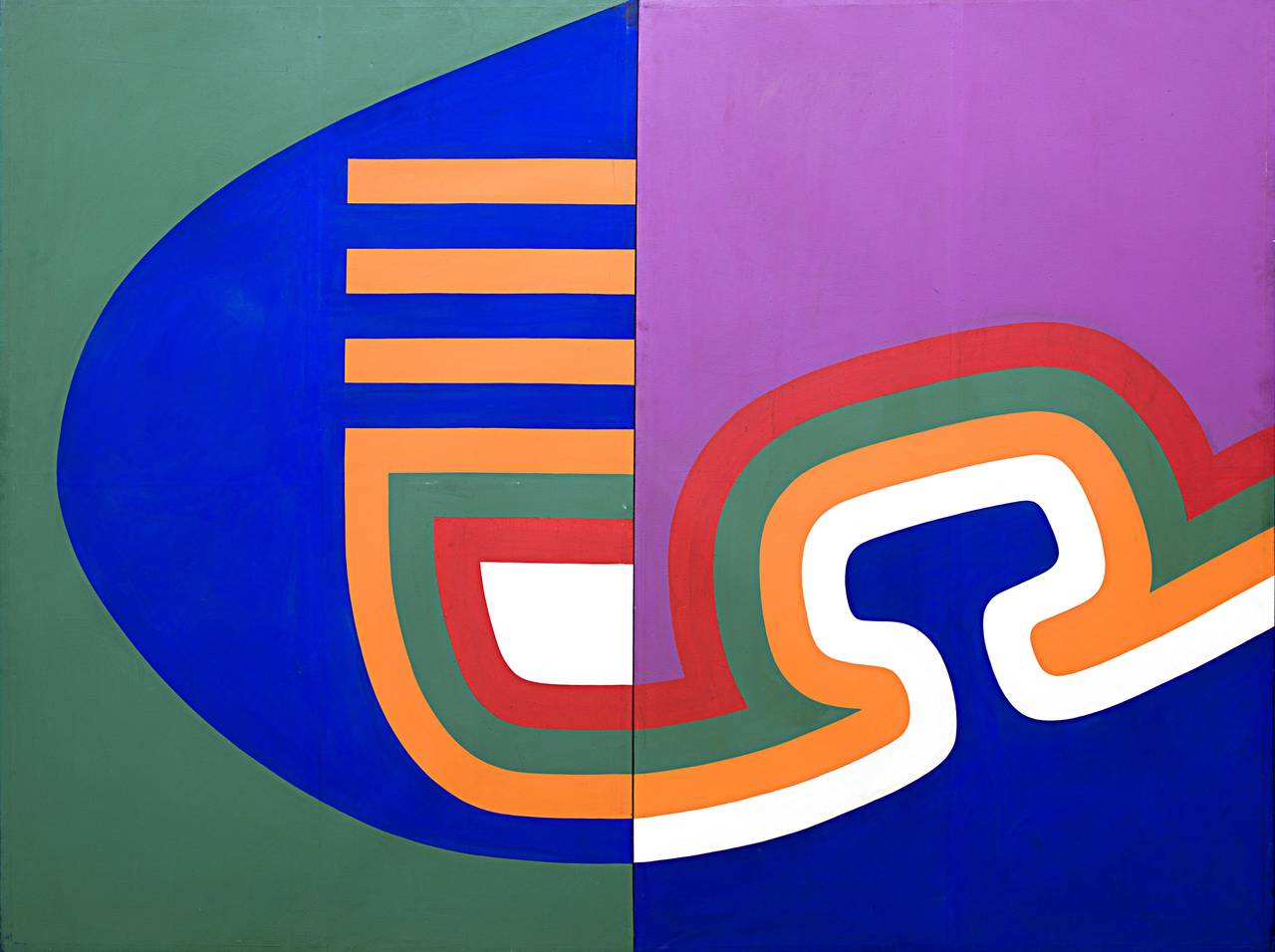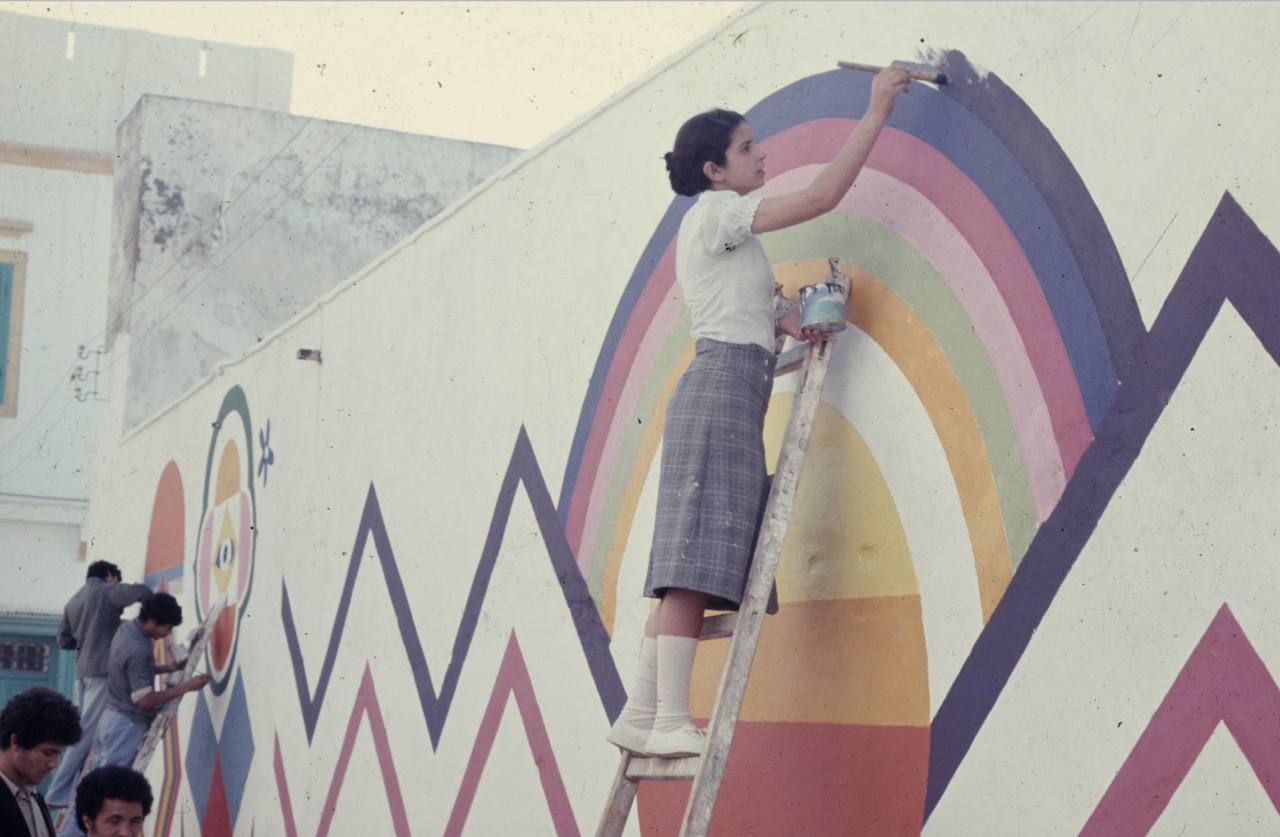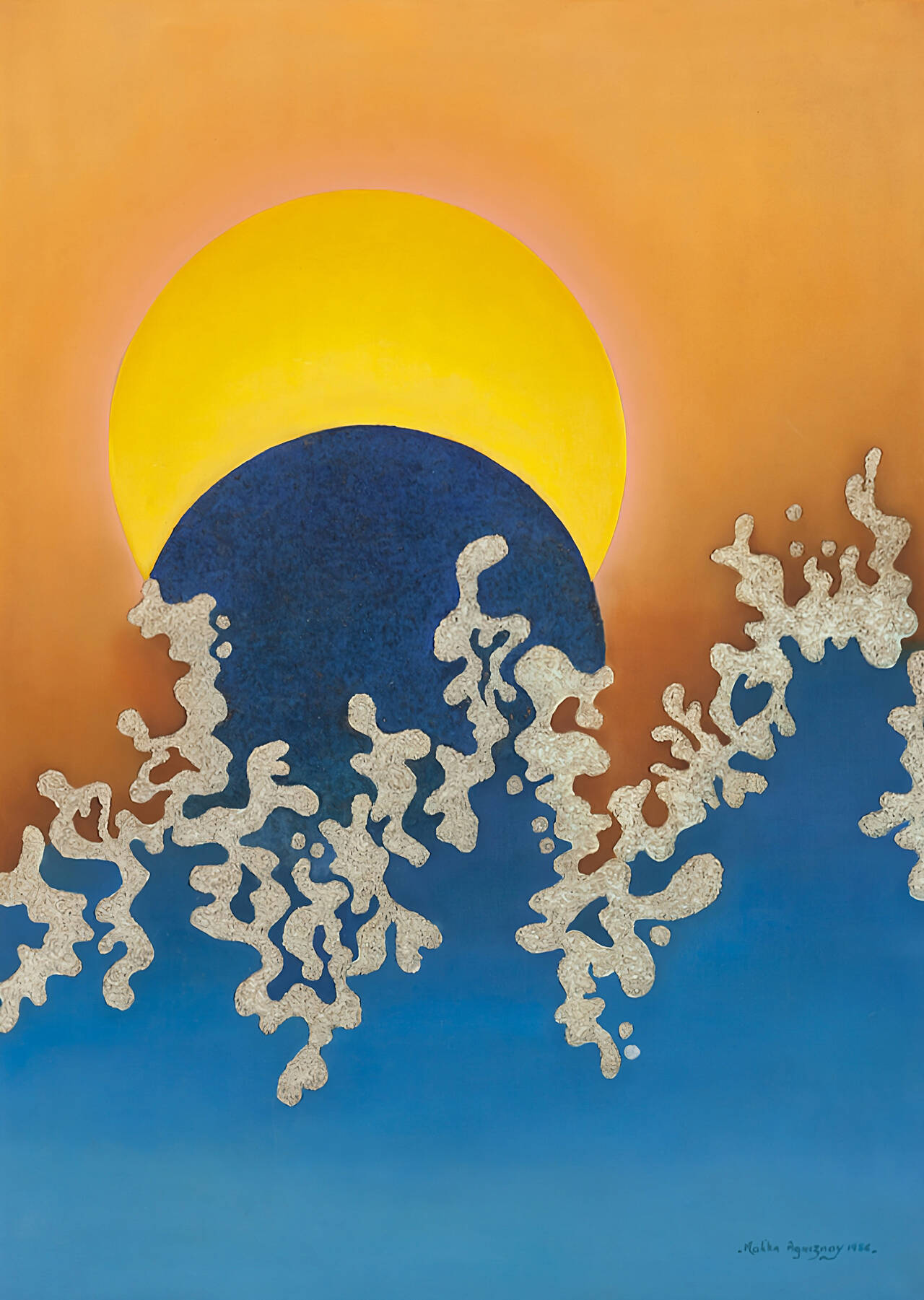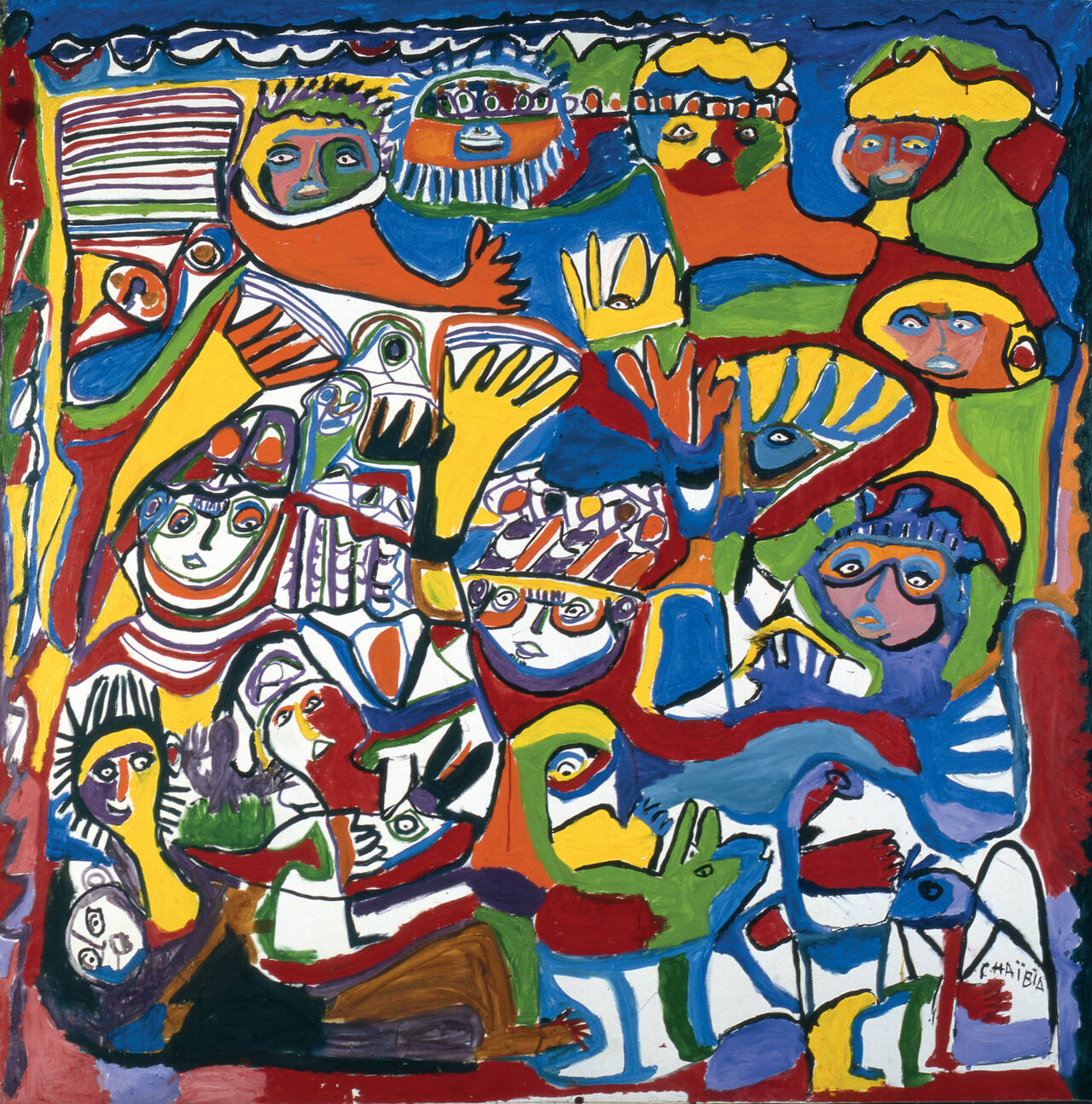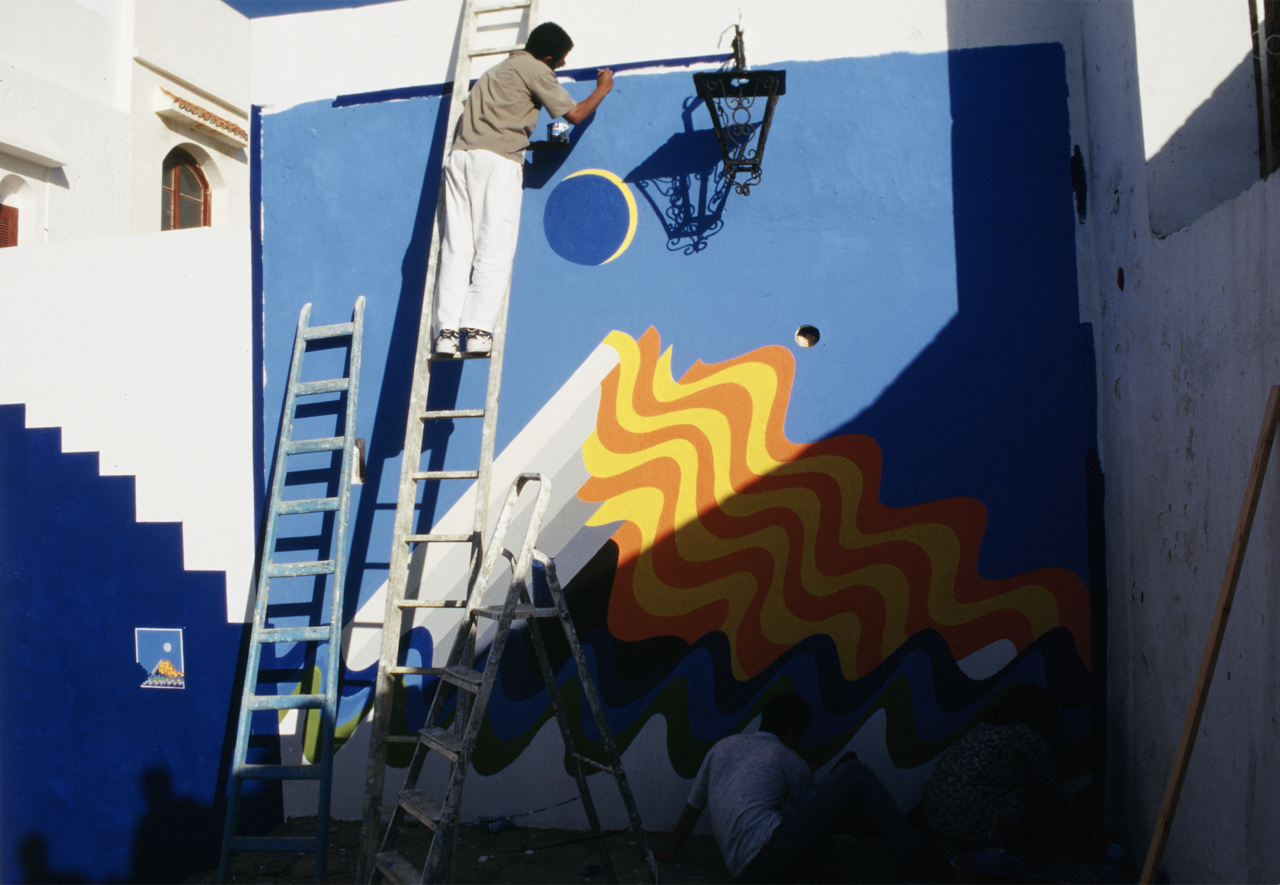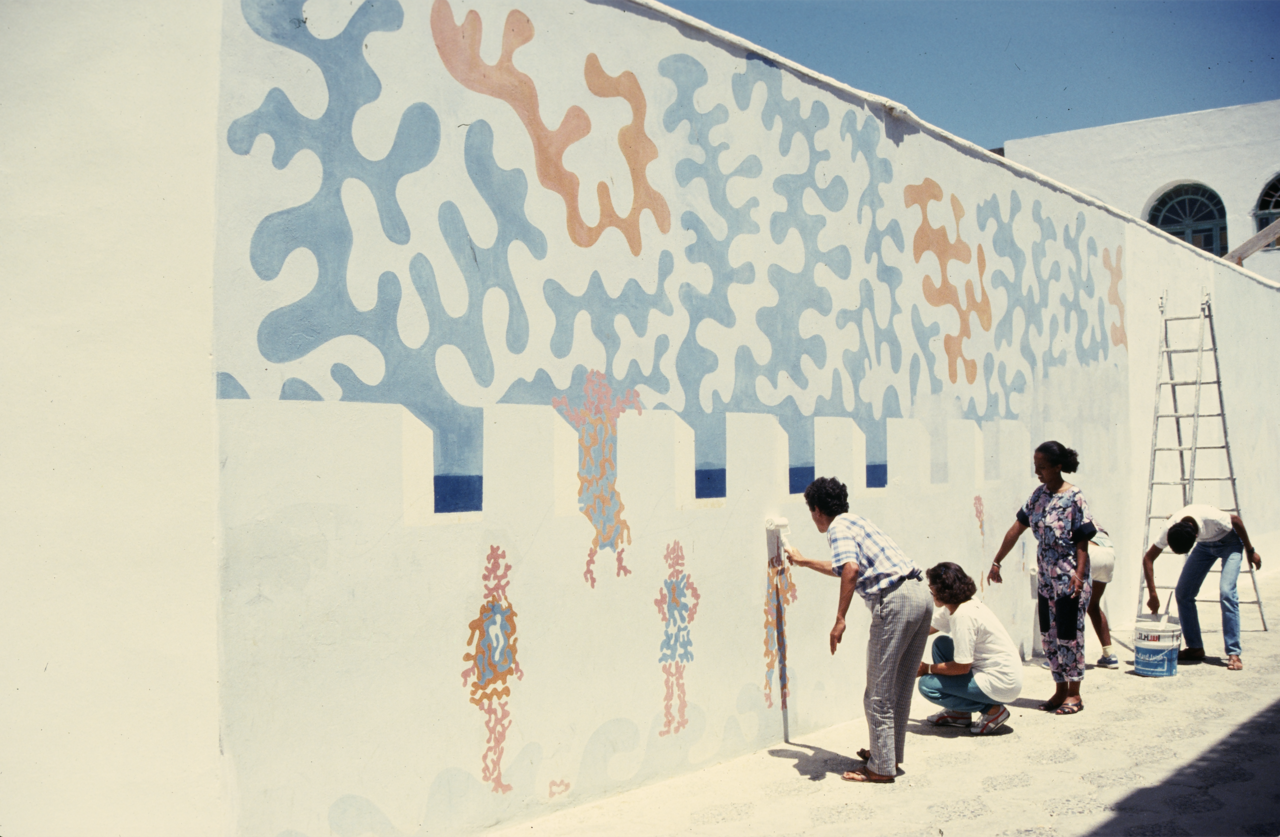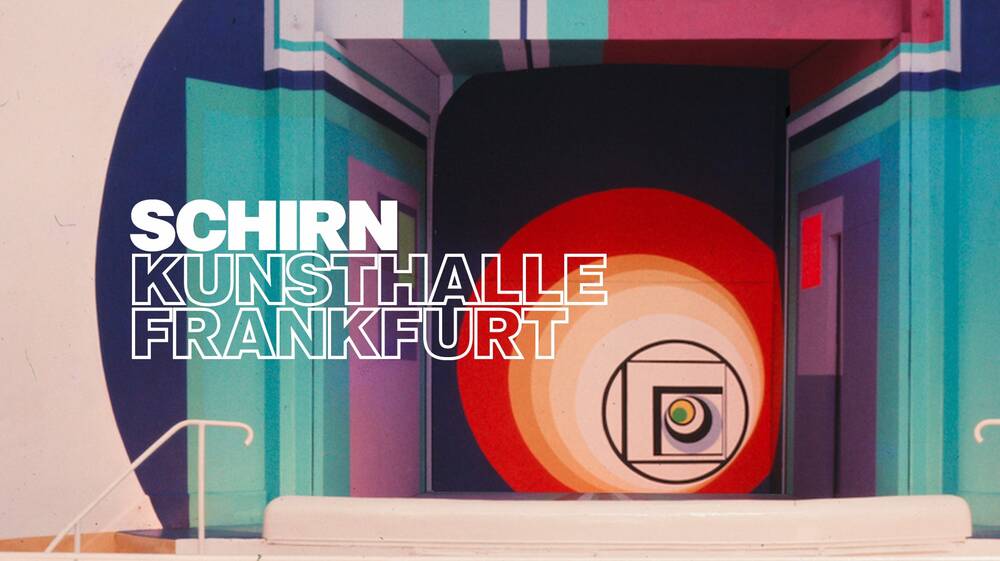A lab for art in the public realm
The CASABLANCA ART SCHOOL wanted to make art part of urban life, visible for all, and interacting with the everyday culture of the city. To this day,...
Just a few years after Morocco gained independence in 1956, a vibrant center of cultural renewal developed in Casablanca. The SCHIRN is presenting the unique and influential work of the Casablanca Art School in a first major exhibition, one that is long overdue. The main representatives of this innovative school—Farid Belkahia (1934–2014), Mohammed Chabâa (1935–2013), Bert Flint (1931–2022), Toni Maraini (1941) and Mohamed Melehi (1936–2020), together with students, teachers, and associated artists—soon became a central driver of the development of a postcolonial modern art in the region. Their aims combined an openness toward local history with the new social reality. They included a reassessment of the relationship between art, handicrafts, design, and architecture within the local context in dialogue with the ideas of the Bauhaus manifesto. This was achieved by combining artistic influences from Western metropolises with elements of the vernacular legacy which had been undermined during the colonial era. The SCHIRN will be presenting some 100 works, including large-format, colorful, abstract (mural) paintings, graphic experiments, and everyday objects, as well as comprehensive documentary material, revealing a specifically Moroccan art scene with transnational aspirations.
